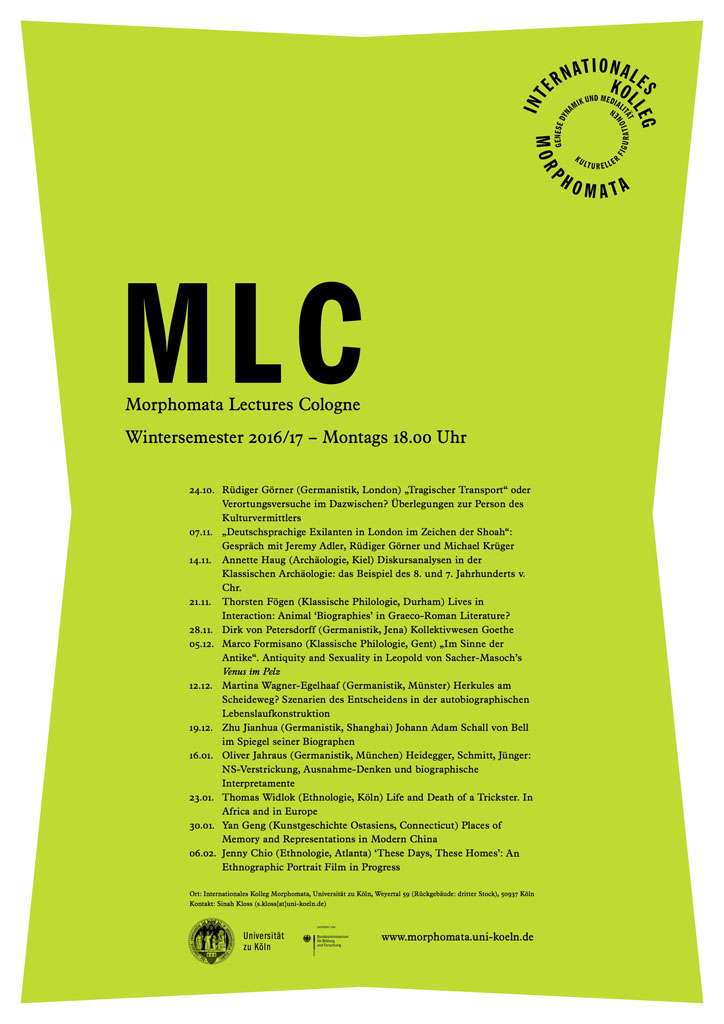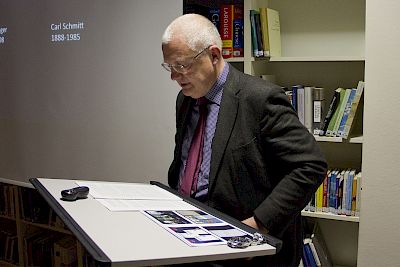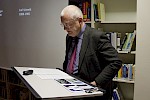My paper raises two questions: First, what happens when it becomes public that an author was politically involved with a totalitarian regime? Or, put differently: What repercussions does this information have on life-writing, that is, on biographical research, but also on the interpretation of such an author’s work? And, secondly, to what extent can one analyze these repercussions with regard to the question of how such authors and their work should be contextualized historically and politically? That is, to what extent are these repercussions themselves symptomatic of a certain historical set of problems from which the political involvement itself originated.
The concept of the ‘morphom’ is essential for these questions, as it helps us to describe exactly those processes from which recurrent patterns of the reception and interpretation of such authors can be derived, and it reveals the structures that determine the expression ‘life and works.’
The most prominent example in recent times is the publication of Heidegger’s so-called Black Notebooks (a sort of diary or scrap book written between 1931 and 1941), which supposedly prove that Heidegger did not only adhere to a philosophically-veiled notion of National Socialism, but that he was, in fact, an anti-Semite out of a philosophical conviction. My paper will also focus on two other authors: Ernst Jünger and Carl Schmitt. The three authors discussed belong to different discourses—philosophy, literature (political essayism or journalism), and law. Despite these different contexts, the three authors suggest an ensemble, because they knew each other; were, to some extent, or, for some time, close (with Ernst Jünger acting as a link between Heidegger and Jünger); intensely conscious of each other; corresponded with each other (letters); read each other’s work and, occassionally interpreted and furthered it. Moreover, all three of them lived to witness their own incrimination resulting from their Nazi relations, and they all reacted to it in their own specific way.
A morphomatic approach to such varying dispositions and reactions, based on a similar set of problems, promises to be very productive, as it enables us to ask how the interplay between Nazi-involvement, its detection and reconstruction, and the reactions to it can draw our attention, in a more specific way, to the problematic historical situation that these authors react to—particularly in their works written during the Weimar Republic and the Third Reich. If we reconstruct their reception history as a history of provocation, the question of why these authors provoke the way they do can open up a new perspective on the question of which problems, constitutive of Modernity, those authors touch upon. The focus, thus, lies on essential elements of these authors’ works—elements which problematize, in particular, their status as life writing. This concerns, most notably, the notions of ‘history of being,’ the ‘worker,’ and the ‘state of exception’ (notions which, at times, mutually reference each other in the authors’ works).


